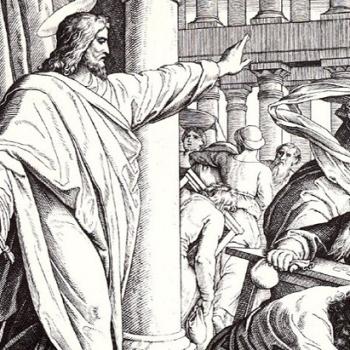
Is there such a thing as Christian feminism?
I’ve been asked by a couple of readers to delve a bit more into how feminism does (and does not) cohere with Christian principles, as my blog has an unapologetically feminist bent.
It’s a fair ask, but rather than comparing/contrasting Christian/feminist perspectives on hot-button social issues, I want to frame my response in terms of perspectives, as I’m fond of doing.
What’s Your Feminist Lens?
How favorably you view feminism as a Christian depends on your starting point. For instance, if you perceive feminism to be bunch of women hating men and fighting for abortion without limits and on demand – qualities that may characterize some feminists – that’s a feminism incoherent with Christian ethics.
However, if your starting point for feminism is the famous and oft-quoted definition coined by writer Marie Shear in 1986 – “feminism is the radical notion that women are people” – the parallel to Genesis 1:27 is striking: “So God created humans in his image, in the image of God he created them; male and female he created them.” Feminism in Shear’s terms is just re-stating what the Bible has already said about women!
Viewing the issue through the lens of racial, rather than gender, activism: if your perception of the Civil Rights movement is all Black Panthers and Malcolm X, and no Martin Luther King or Sojourner Truth, you won’t be able to appreciate the movement’s value and contribution to human rights.
Similarly, Christians fail to appreciate the value that feminism brings to the table when they focus only on its worst iterations.
Feminism: A (Very) Brief Historical Overview
In its earliest expressions, what we call “feminism” was about women being side-by-side, rather than subjects beneath, or rulers over, men. Consider the suffragists of the first feminist wave, starting in the 19th century. They didn’t argue that they were superior to men. Rather, they asserted their equal humanity: as fully human beings, like men, they had a right to vote alongside men. Many of them, such as Frances Willard, were devout Christians. The Women’s Christian Temperance Union, with chapters across the United States, played a key role in securing women’s right to vote.
Second wave feminism, beginning in the 1960s, continued to emphasize this basic concept of equal opportunity but also built upon it. For example, in addition to advocating equal pay for equal work, women fought for legal protections against sexual harassment and discrimination in the workplace. Again, this feminist activism was based on the explicitly Christian principle that men and women are equally human and designed to steward creation side-by-side, as suggested by Gen. 1:27. This Edenic gender equality is actually expounded, quite tenderly, in the second creation narrative, where God creates woman in a strategic operation from Adam’s side (Gen. 2:21-22).
Yet second wave feminism veered off course in several ways, including with abortion. In supporting a woman’s “right to choose,” second-wave feminism dismissed the dignity and value of the unborn human being inside the woman: her child. While I personally don’t think abortion should be illegal in all cases – there are too many ethical dilemmas arising from a one-size-fits-all prohibition here – feminism that asserts itself at the expense of another human life is no longer feminism.
Why?
Because if the fundamental point of feminism, as demonstrated by its earliest proponents, is that women should be able to live into their full humanity, feminism cannot be consistent with denying the humanity of other human beings.
Admittedly, there are competing visions of feminism, and some of them do not comport with Christian values to honor our neighbors and our God-given bodies. But a concept of feminism supporting a woman’s right to “be and do whatever she wants” – a concept of feminism that is willing to denigrate the rights of other human beings and even the dignity of the female body – is arguably de-humanizing, de-feminizing, and ultimately not feminist. As a final note on this point, we need to acknowledge that the “you do you” message – this idea of unbounded human freedom – isn’t intrinsic or exclusive to feminism but consistent with modern, broader, cultural trends espousing limitless human choice without moral consequences.
Christian Feminism: A New Wave
My critique of feminism as a Christian is not its general core (Christian) principle – that women should be valued as fully human alongside men – but the way in which feminism, in some respects and iterations, has gradually “modernized” to abandon Christian notions of what it means to be human and moral, succumbing, as it were, to the spirit of the age (Rom. 12:2). But to eschew “feminism” entirely is as wrongheaded as dismissing the Civil Rights movement because you don’t like the Black Panthers.
To really understand how Christianity coheres with feminism, we’re going to have to go deeper than the “culture war” narrative that glosses over history and pits one against the other. We have got to go deeper, because the church desperately needs Christian feminism – the historic feminism of the faithful – to expose and resist the denigration of women in the church today: from modern Bible translations that systematically exclude the female sex – even where the original language is gender-neutral – to the exclusion of women from church leadership that paves the way for abuse. Christians need to reclaim the best of feminism, not just to protect women, but to ensure that our lives, our worship, and our witness are centered less on men and more on God.
















